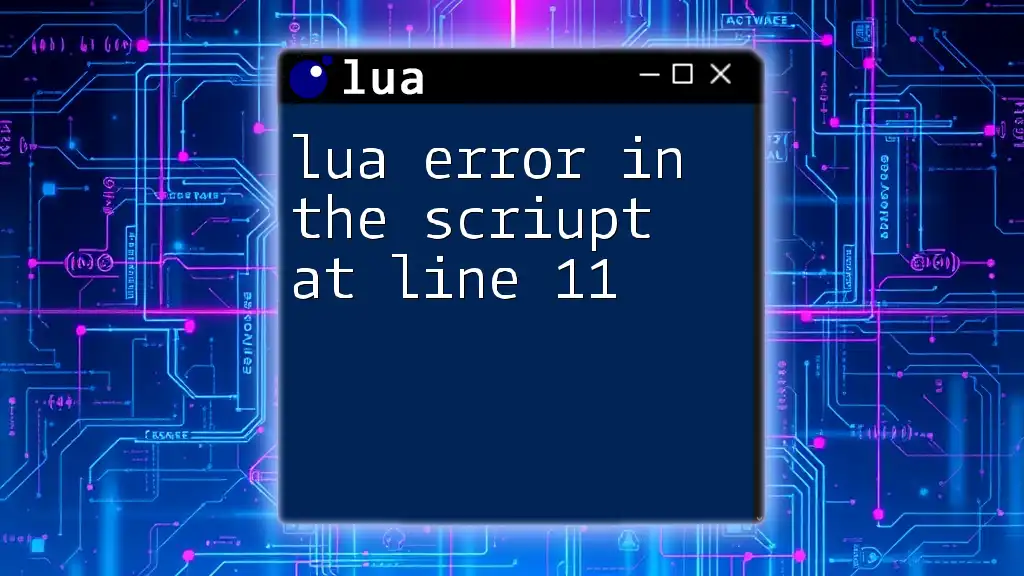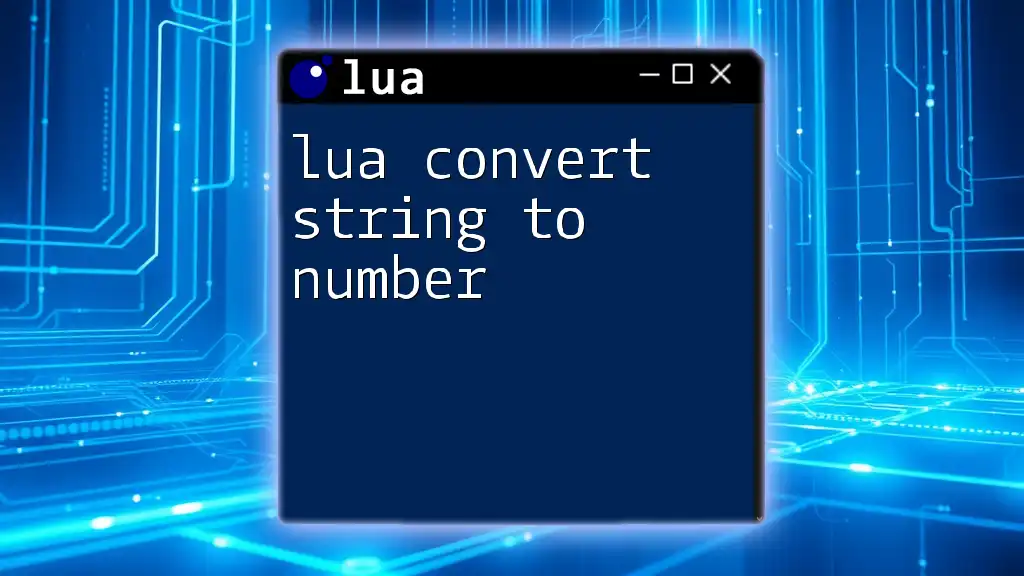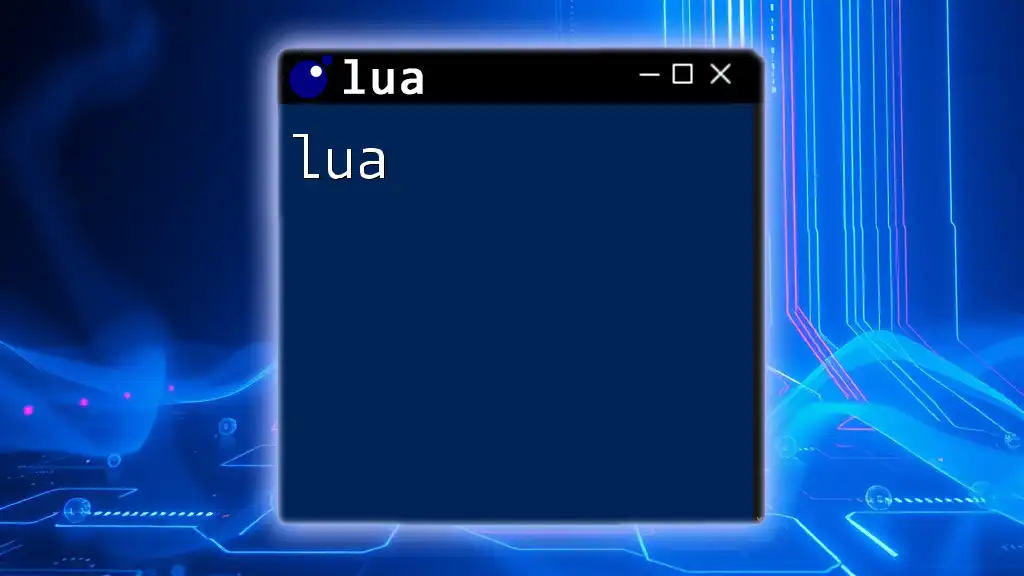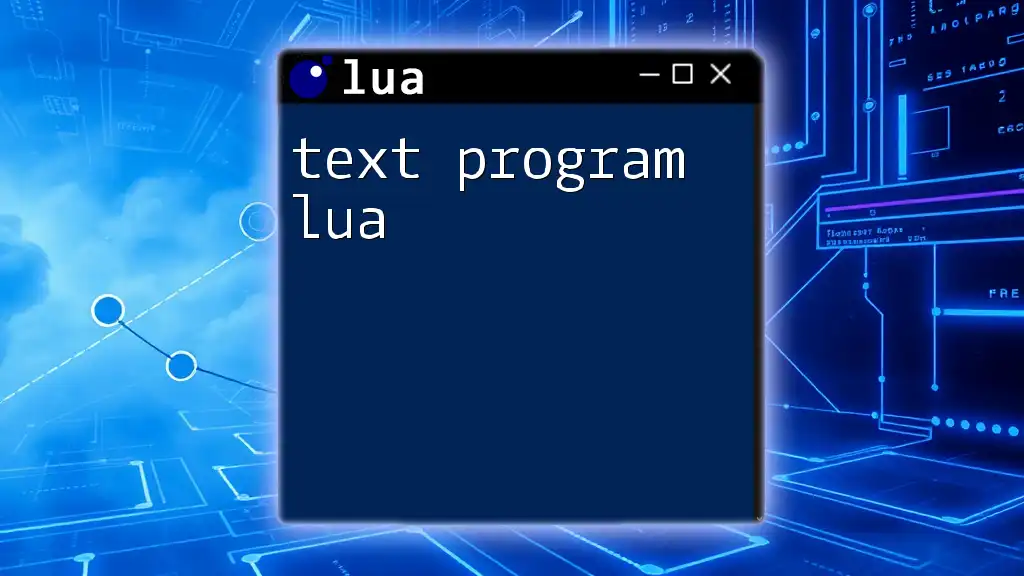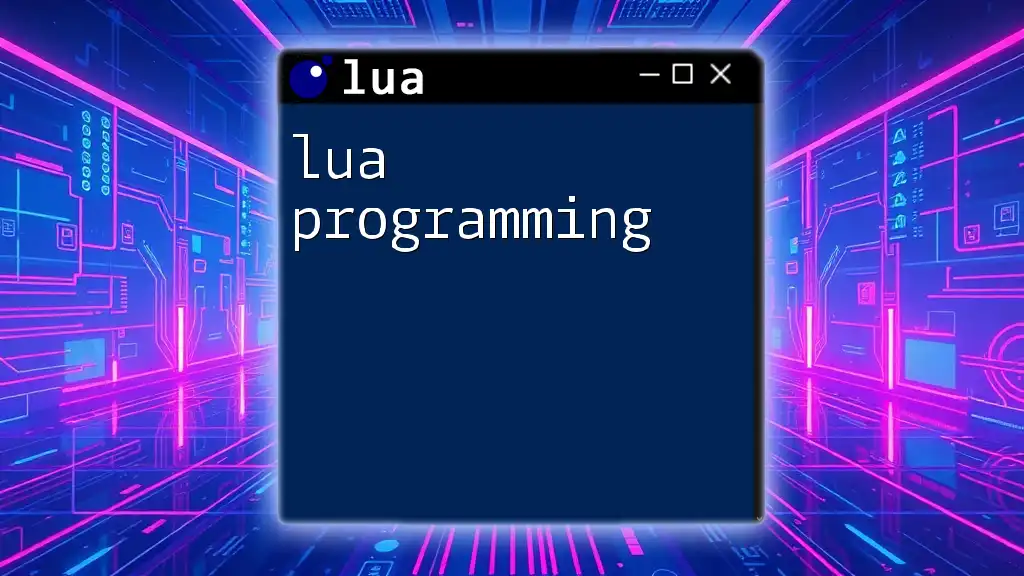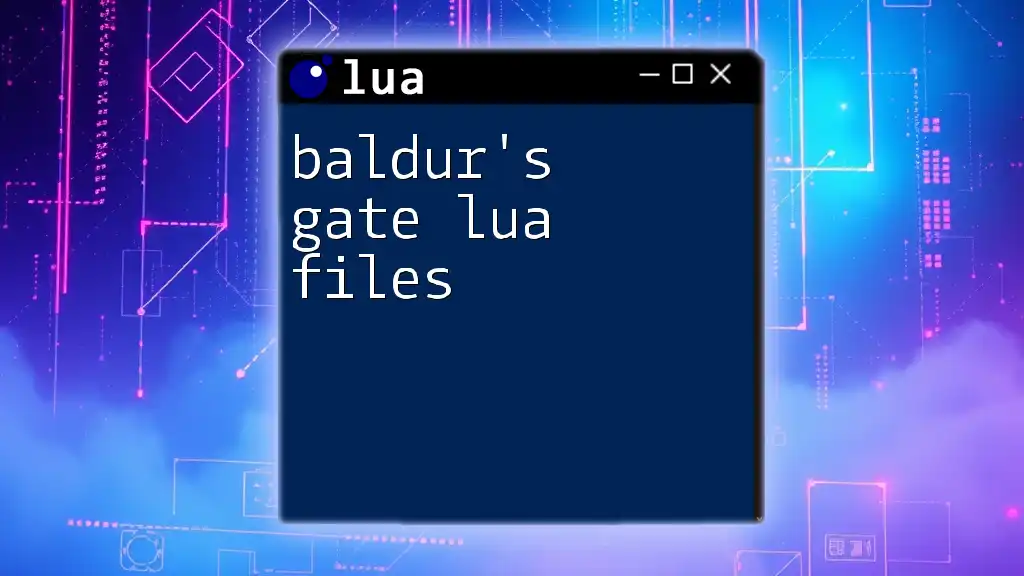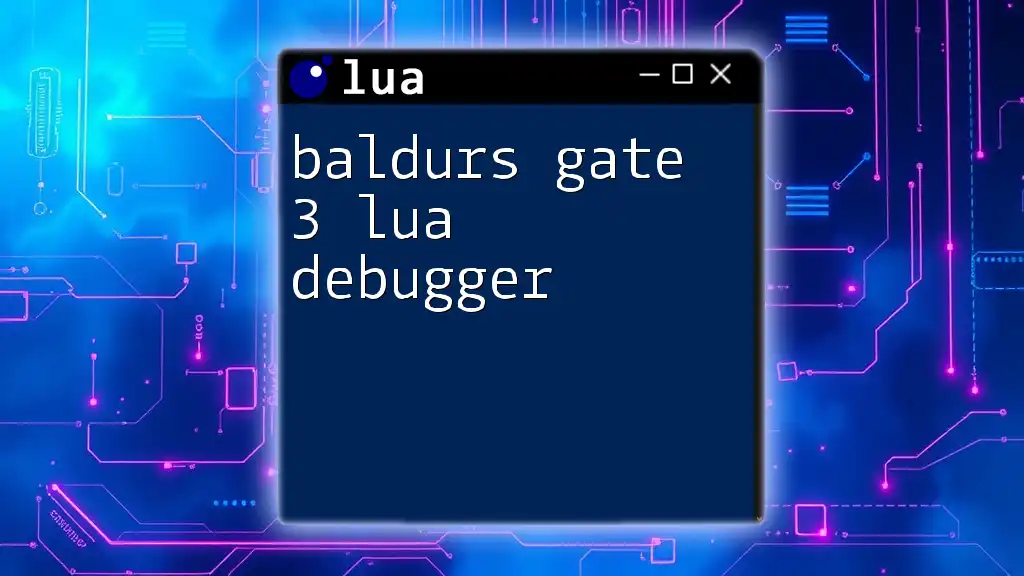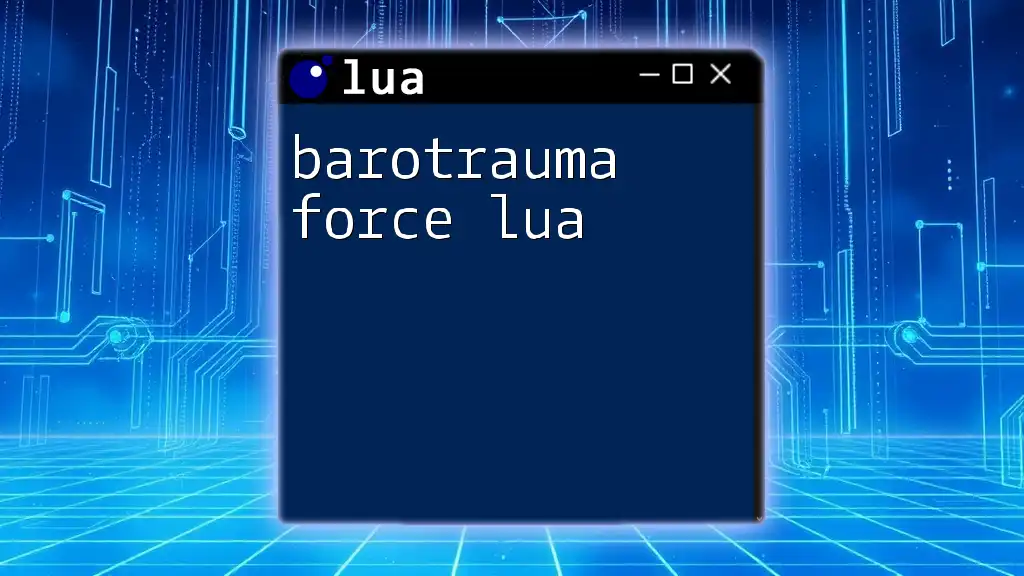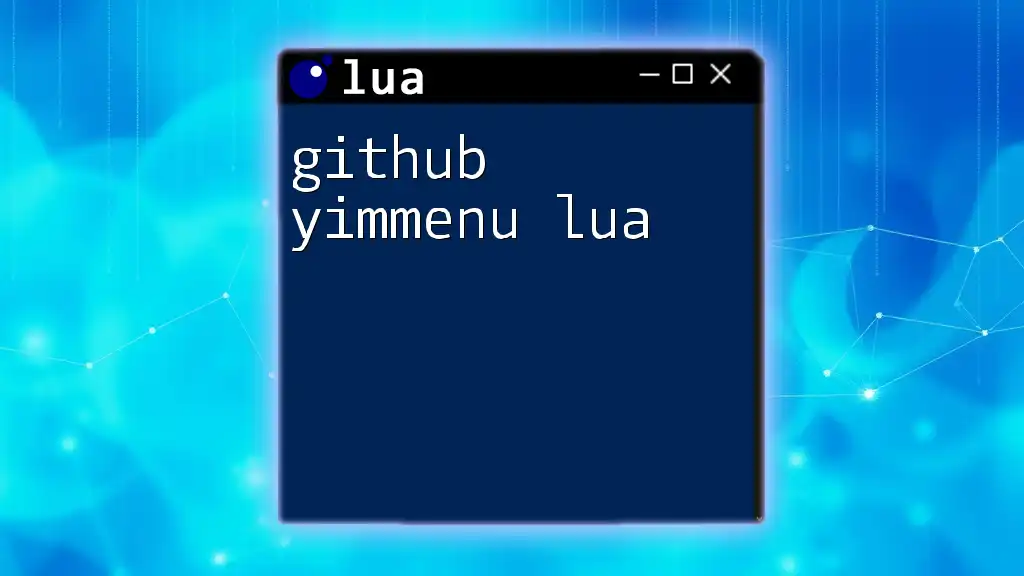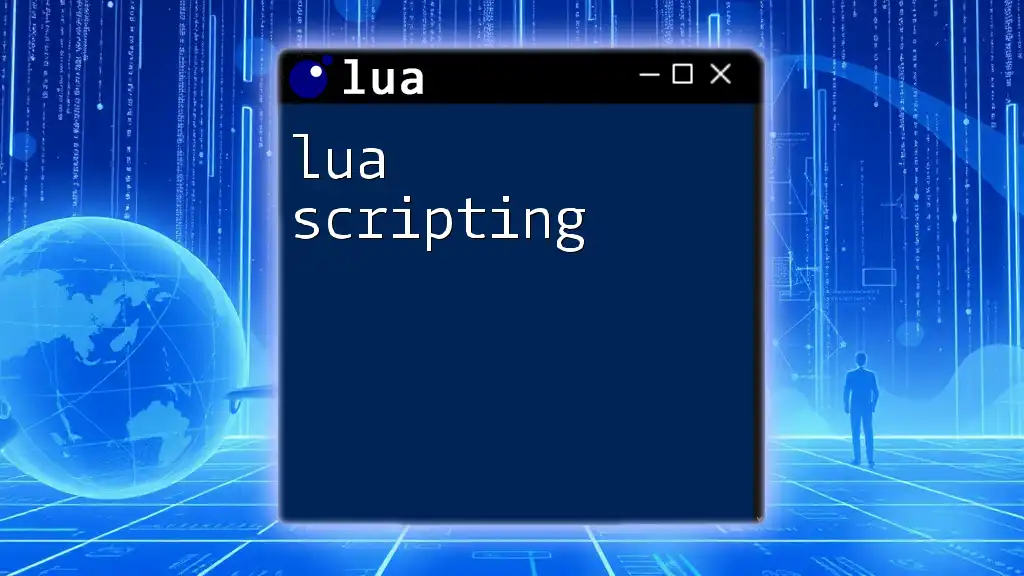A "lua error in the script at line 11" indicates that there is an issue in your Lua script specifically at line 11, which can often be due to a syntax error, a runtime error, or an invalid variable reference.
Here’s a code snippet illustrating a possible error location:
function calculateSum(a, b)
return a + b
end
result = calculateSum(5, 10)
print(Result) -- Error here: variable 'Result' is not defined
Overview of the Error Message
When encountering "lua error in the script at line 11", it's essential to understand the components of this message. The term "error" signifies that something in your code has malfunctioned, while "script" refers to the Lua code file you are running. The mention of "line 11" indicates the specific line of your code that has triggered this error, serving as a crucial clue in your debugging process.
Common Causes of Error at Line 11
Errors can emerge from various coding mistakes. It's important to realize that the error might not always originate directly from line 11; sometimes, issues in earlier lines can cascade down to affect subsequent lines. Thus, examining the surrounding context is crucial.
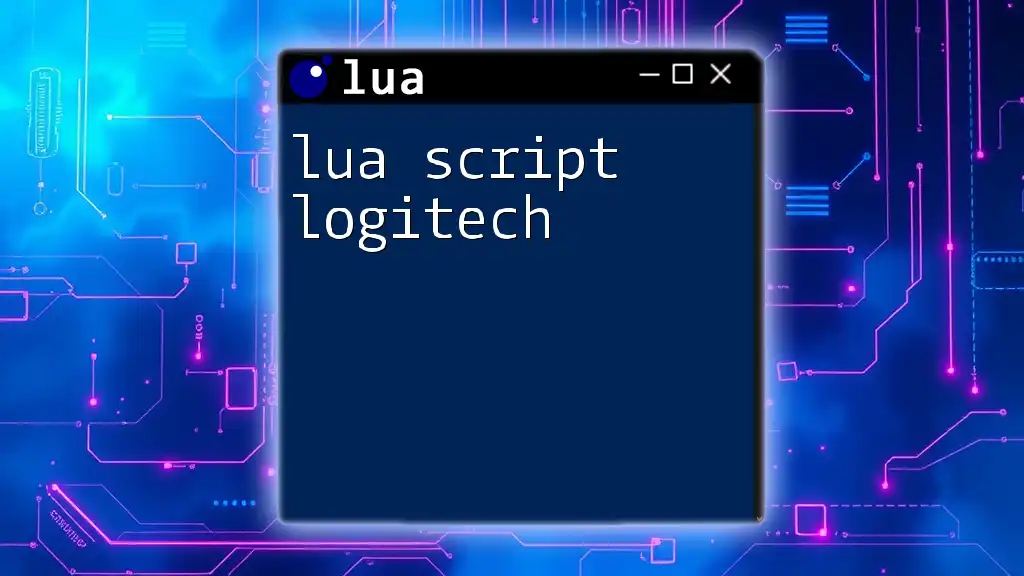
Common Error Types in Lua
Syntax Errors
A syntax error occurs when the Lua interpreter encounters code that does not conform to its rules. This type of error can halt your program before it even starts running. For instance:
print("Hello World"
In this example, the missing closing parenthesis leads to a syntax error. The correct version should be:
print("Hello World")
It's important to check for matching parentheses, brackets, and proper structuring of the code.
Runtime Errors
Runtime errors happen during the execution of your script, even if the syntax is correct. For example:
local function divide(a, b)
return a / b
end
print(divide(10, 0)) -- This will cause a runtime error
Here, dividing by zero raises an error when the code runs. To handle such errors, you can use `pcall`, which safely calls a function and returns any errors without terminating your script:
local status, err = pcall(function() return divide(10, 0) end)
if not status then
print("Error: " .. err)
end
Logical Errors
Logical errors occur when your code runs without any syntax or runtime errors, yet it does not produce the expected outcome. Consider this example:
local x = 10
local y = 20
print(x + y) -- Expected to print 30 but mistakenly prints 20
In this case, the error lies in the flawed logic of the code. Debugging logical errors often requires careful scrutiny of your algorithms and variable values.
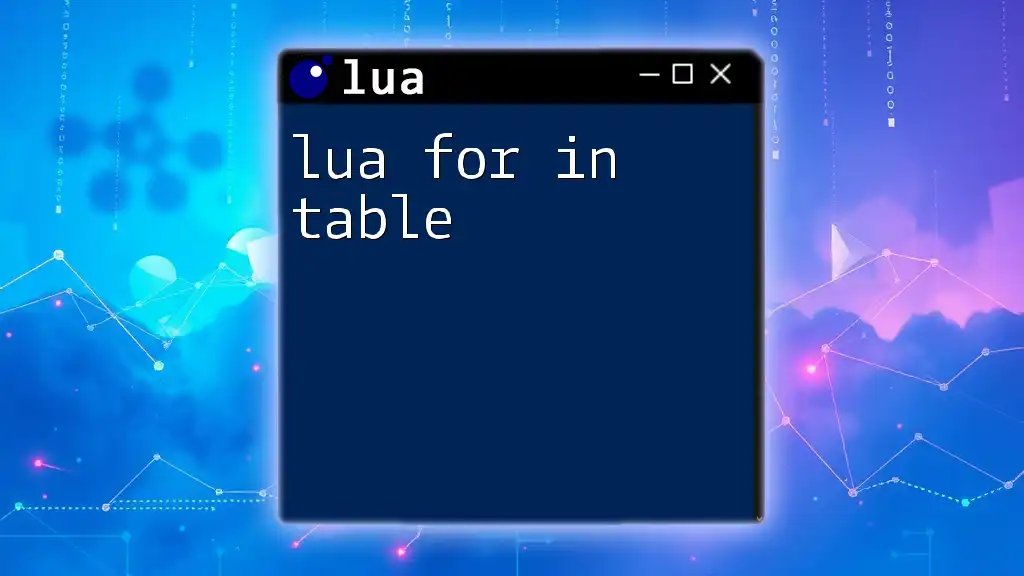
Diagnosing "Error in the Script at Line 11"
Importance of Line Numbers
When debugging, the line number provided in the error message is a critical indicator of where to begin your investigation. Each line number corresponds to a specific section of your code, making it easier to localize potential issues.
Assessing the Code on Line 11
Start by examining line 11 and its context. Often, the problem isn’t solely at line 11 but can be a result of errors in preceding lines. For example:
local function greet(name)
if name == nil then
print("Hello, Guest!")
print("Hello, " .. name) -- This is line 11 and problematic
end
In this case, there's a missing `end` statement that closes the `if` block. The result is a syntax error at line 11, as Lua expects the condition to be properly closed before executing subsequent code.
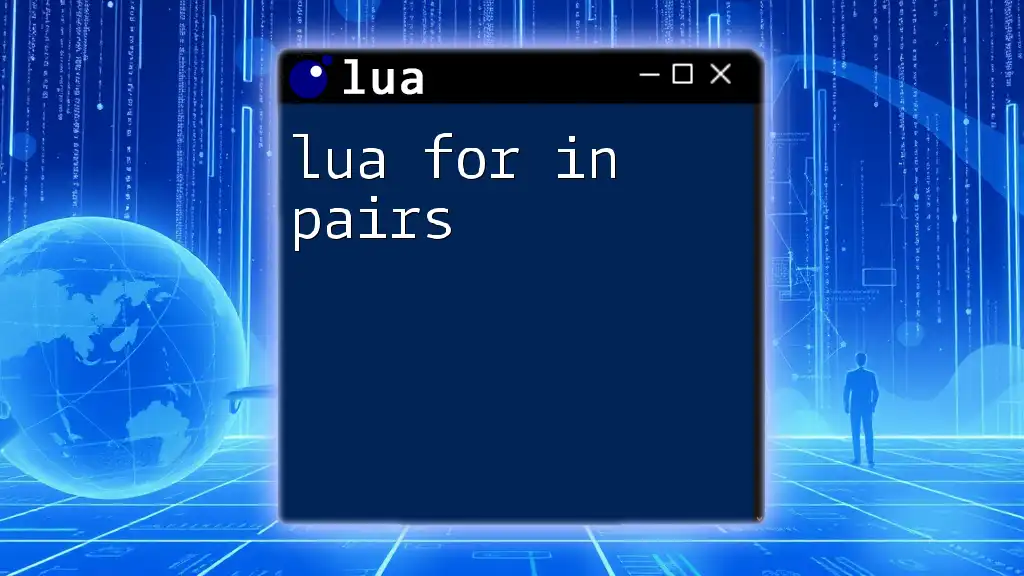
Steps to Resolve the Error
Step-by-Step Troubleshooting
When faced with the error, follow these steps:
- Isolate the error: Focus specifically on line 11 and nearby lines to understand the context.
- Review Lua syntax: Ensure all parentheses, brackets, and syntax elements are intact.
- Use print debugging: Insert print statements before line 11 to track the flow and variable values within your code. For example:
print("Before error line")
print("Value of name: ", name)
Utilizing the Debug Library in Lua
Lua’s debug library can be incredibly useful for diagnosing issues. The `debug.traceback()` function provides a stack trace when an error occurs, allowing you to pinpoint where things went wrong. For instance:
function errorHandler()
error("Simulated Error")
end
xpcall(errorHandler, function() print(debug.traceback()) end)
In this setup, the xpcall function safely executes `errorHandler`, and if it fails, the second function prints out a traceback, showing you the path through your code that led to the error.
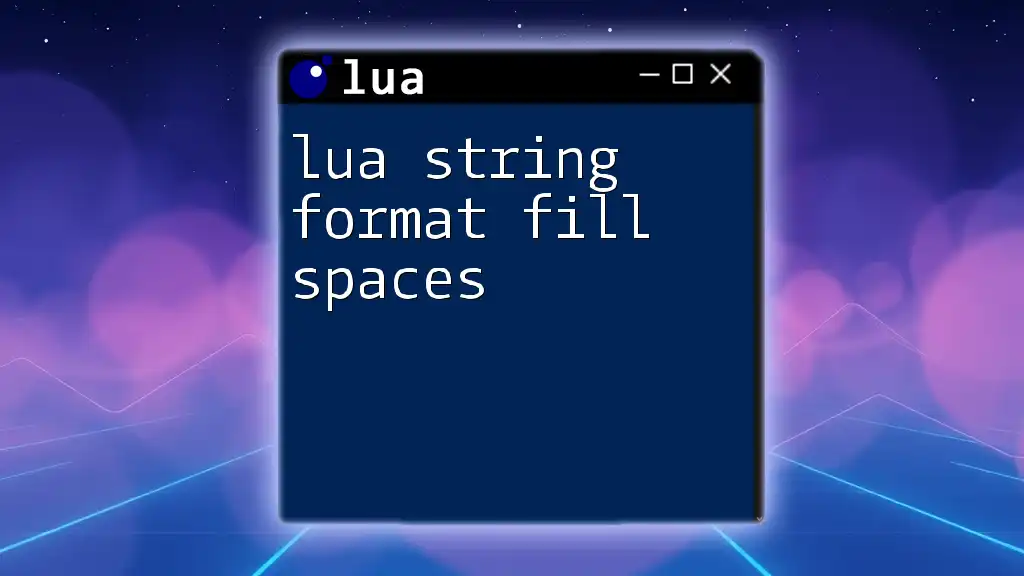
Best Practices to Avoid Errors
Writing Clean Code
Maintaining clean and readable code is essential. Proper indentation and thoughtful comments can significantly enhance code clarity, which in turn helps prevent errors. Always aim for consistency in your formatting to make it easier for both yourself and others who read your code.
Regular Testing and Debugging
Adopting a habit of frequently testing your code can catch errors early in the development process. Consider implementing unit testing, where you create small test cases for individual functions, ensuring they perform as expected.
Utilizing an IDE or Text Editor
Using an Integrated Development Environment (IDE) or a sophisticated text editor can streamline the coding process. Many modern IDEs, such as ZeroBrane Studio or Sublime Text, offer syntax highlighting, debugging tools, and error detection, which help catch common mistakes before running the code.
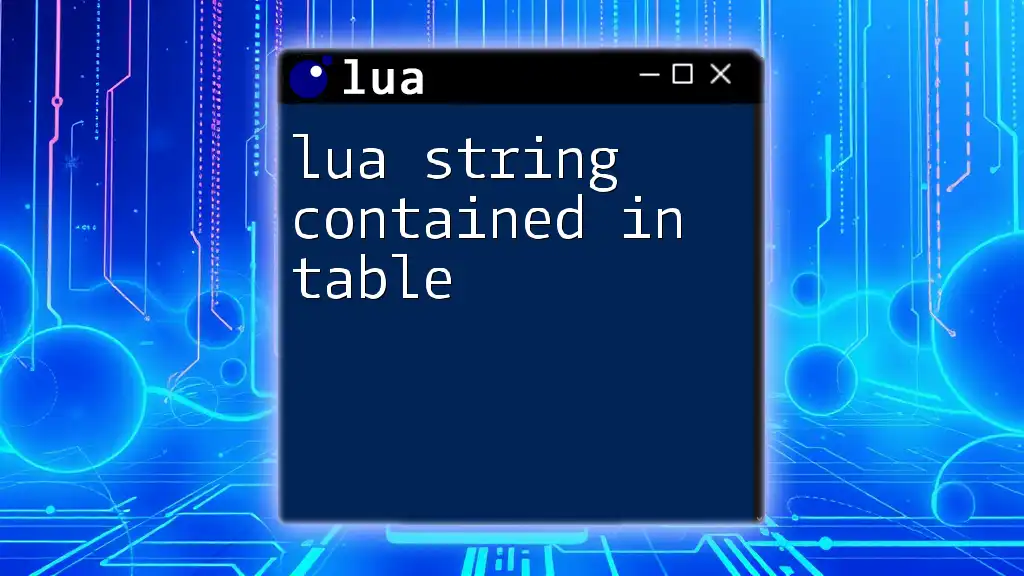
Conclusion
Diagnosing the "lua error in the script at line 11" is an important skill for any Lua programmer. By understanding the error's components, recognizing common error types, leveraging debugging tools, and following best practices, you can enhance your debugging skills. Remember, every error is an opportunity to learn and improve your programming expertise. Embrace the challenge, and soon you’ll navigate Lua errors with confidence.

